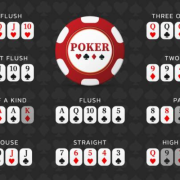Special Immigrant Juvenile Status (SIJS) is designed to assist foreign children and youth who have experienced abuse, neglect, or abandonment and are unable to return safely to their home countries. To be eligible for SIJS, individuals must meet the following criteria:
Who is eligible for Special Immigrant Juvenile Status (SIJS)?
Age: The applicant must be under the age of 21 at the time of filing the SIJS petition (Form I-360).
Marital Status: The applicant must be unmarried, as SIJS is not available to married individuals.
Dependency: The individual must be declared dependent on a juvenile court in the United States, which means that the court has determined that it’s not in their best interest to return to their home country due to the aforementioned circumstances.
What is the role of the juvenile court in the SIJS process?
The juvenile court plays a pivotal role in the SIJS process. To apply for SIJS, the applicant must obtain a court order from a juvenile court in the United States. This court order is essential and serves as proof of the child’s dependency status, as determined by the court due to abuse, neglect, or abandonment.
The court order must contain specific findings related to the child’s welfare and best interests. These findings help establish eligibility for SIJS when filing the immigrant petition (Form I-360) with U.S. Citizenship and Immigration Services (USCIS). Therefore, the cooperation and involvement of the juvenile court are critical in the SIJS application process.
How do I apply for SIJS?
Applying for SIJS involves several key steps:
Obtaining a Court Order: Begin by seeking a court order from a juvenile court in the U.S. This court order declares the child’s dependency and outlines the reasons for their inability to return to their home country safely.
Filing Form I-360: After obtaining the court order, submit the SIJS immigrant petition (Form I-360) to USCIS, along with the required supporting documentation.
USCIS Processing: USCIS will review the petition and supporting documents to determine eligibility for SIJS. Once approved, the applicant can move forward with the green card application.
Applying for Lawful Permanent Residency: After USCIS approval, the next step is to apply for lawful permanent residency (a green card) through the adjustment of status process or consular processing, depending on the applicant’s circumstances.
What are the benefits of SIJS?
Special Immigrant Juvenile Status (SIJS) offers several significant benefits to eligible individuals, including:
Legal Permanent Residency: SIJS leads to the issuance of a green card, granting the child lawful permanent residency status in the United States.
Protection from Deportation: SIJS recipients are protected from deportation and removal proceedings.
Access to Education and Healthcare: SIJS beneficiaries can access educational opportunities and healthcare services in the U.S.
Pathway to U.S. Citizenship: After obtaining a green card, SIJS recipients may eventually become eligible to apply for U.S. citizenship through the naturalization process.
SIJS provides a stable and secure future for vulnerable children and youth who have faced adversity in their home countries.
How long does it take to obtain a green card through SIJS?
The timeline for obtaining a green card through SIJS can vary depending on various factors, including USCIS processing times and the specific circumstances of the case. Generally, the process may take several months to a year or more from the initial court order to receiving the green card.
It’s essential to work closely with an experienced immigration attorney to expedite the process and ensure that all required steps are completed accurately and efficiently.
How Can a Legal Firm Help?
A legal firm specializing in immigration matters can provide invaluable assistance throughout the SIJS application process. The best firms to seek out for these needs are bilingual Law firms with family lawyer Spanish speaking to help ensure the process goes as smoothly as possible. Their role includes:
Determining Eligibility: An immigration attorney can assess whether an individual meets the eligibility criteria for SIJS and provide guidance on the necessary steps.
Court Representation: They can represent the child’s interests in the juvenile court to obtain the required dependency order.
Form I-360 Preparation: Attorneys can assist in preparing and filing the SIJS immigrant petition (Form I-360) with USCIS, ensuring accuracy and completeness.
Green Card Application: They can guide the applicant through the process of applying for lawful permanent residency (green card) after USCIS approval.
Engaging the services of an experienced legal firm can significantly increase the chances of a successful SIJS application and provide peace of mind throughout the complex immigration process.
Conclusion
Special Immigrant Juvenile Status (SIJS) is a vital immigration option that provides a path to legal permanent residency and a brighter future for vulnerable children and youth in the United States. Understanding the eligibility criteria, the role of the juvenile court, and the application process, as well as seeking legal assistance, is crucial for those seeking SIJS.


















Comments